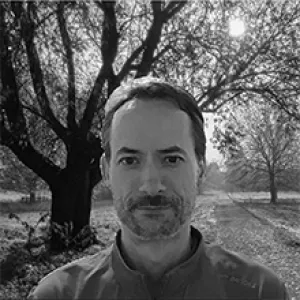Profile
Dr Robert Corrie is a remote sensing scientist, currently working as a Research Associate in the Climate Research Group at Oxford's Environmental Change Institute (ECI), where he uses machine learning tools and big data to model extreme weather events across the Earth. His background is in earth observation and planetary imaging, where he is considered an expert in the processing of earth, planetary, and deep space satellite data.
Robert has accrued over ten years of experience working in the space industry and has authored or co-authored mission proposals for various space agencies including NASA, UKSA, ESA, JAXA, and Dutch Space. Prior to joining the ICI in April 2023, Robert worked as a research software engineer at Goonhilly Earth Station – the world's first commercial deepspace communications network facility. He was the team lead on several projects including working on an open standard to advance internet beyond earth orbit using Delay Tolerant Networking (DTN) protocols, and the implementation of a ground segment API for antenna scheduling and management.
Robert completed his DPhil (PhD) in Remote Sensing at the University of Oxford in 2016, where he used thermal infrared and radar data to detect new archaeological sites across the eastern Sahara Desert. This work was sponsored by The Queen's College, Oxford, and the California Institute of Technology (Caltech). His DPhil was completed as a Graduate Research Fellow (JPLGF) at the NASA Jet Propulsion Laboratory (JPL) in Pasadena, California. In addition to his doctorate, Robert holds an MPhil in Remote Sensing and Geographical Information Systems from the University of Cambridge, where he worked with thermal infrared data from the Mars Global Surveyor satellite to examine Martian surface spectral properties. Prior to his graduate study, Robert completed his undergraduate work in the United States (California).
Some of Robert's diverse research interests include the impact of technology on society and culture, observational astronomy using CCD imaging, and SETI research for signal detection and response. He is an active member of the UK SETI Research Network (UKSRN).
For a full list of publications and a detailed resume, please visit his LinkedIn page.

